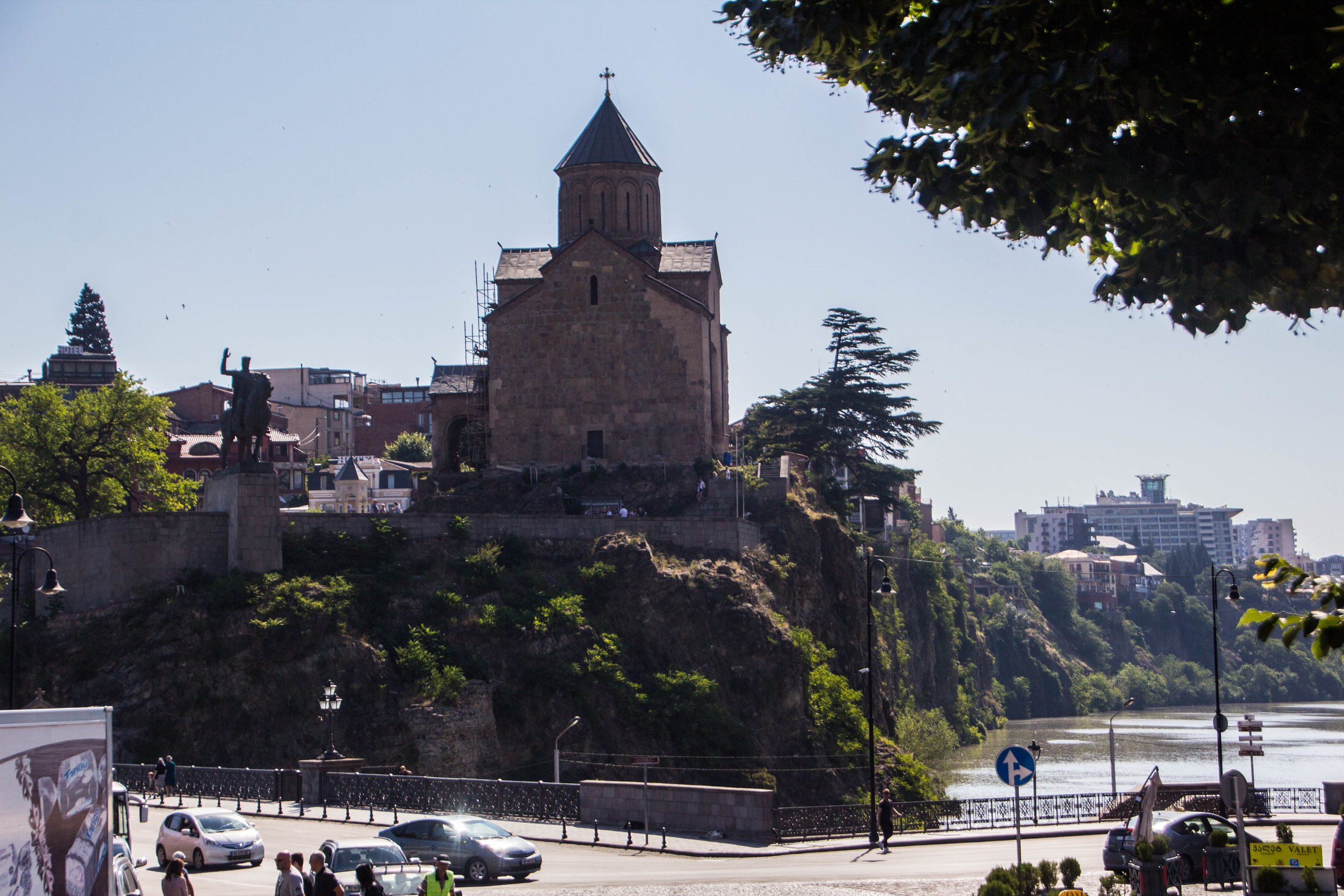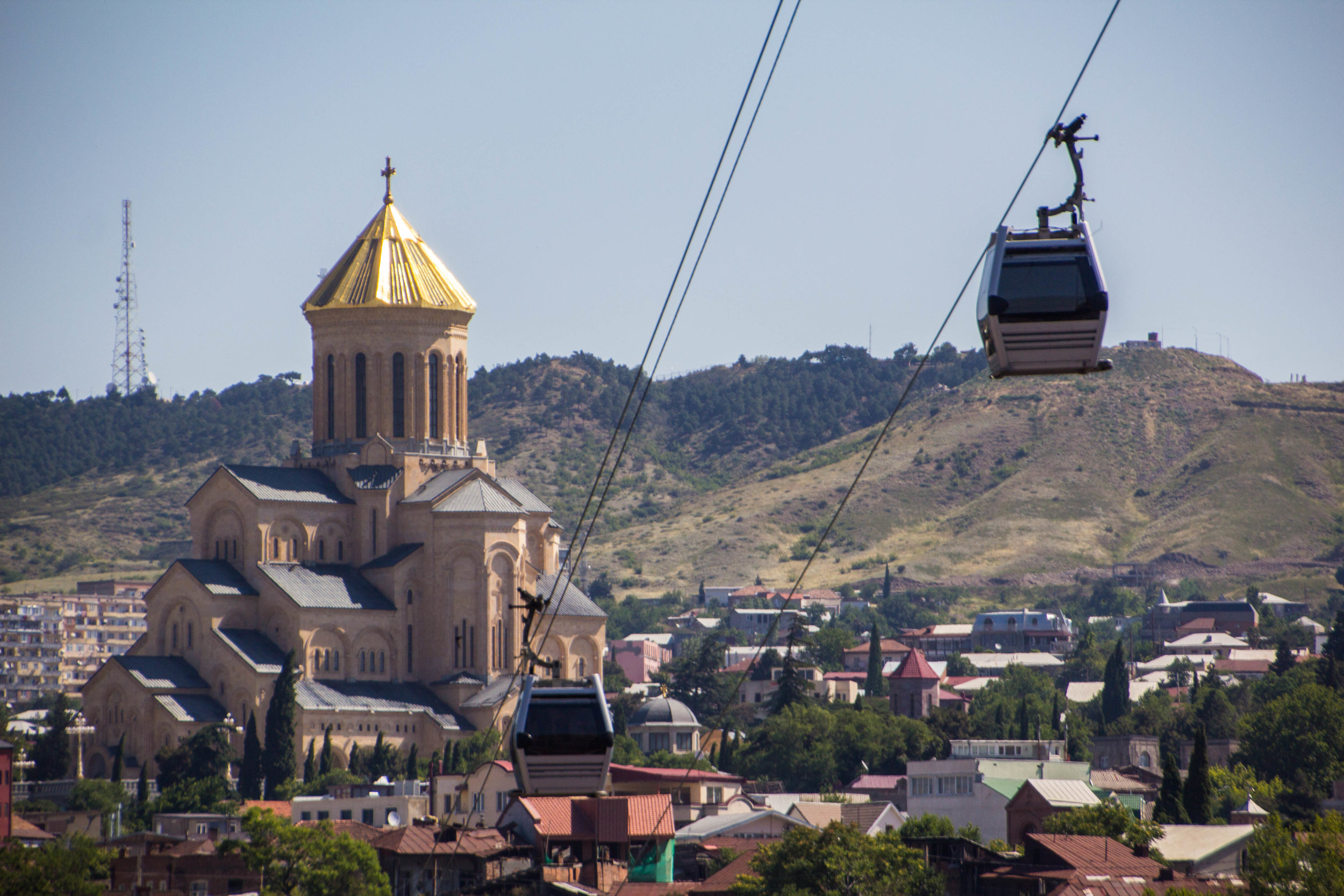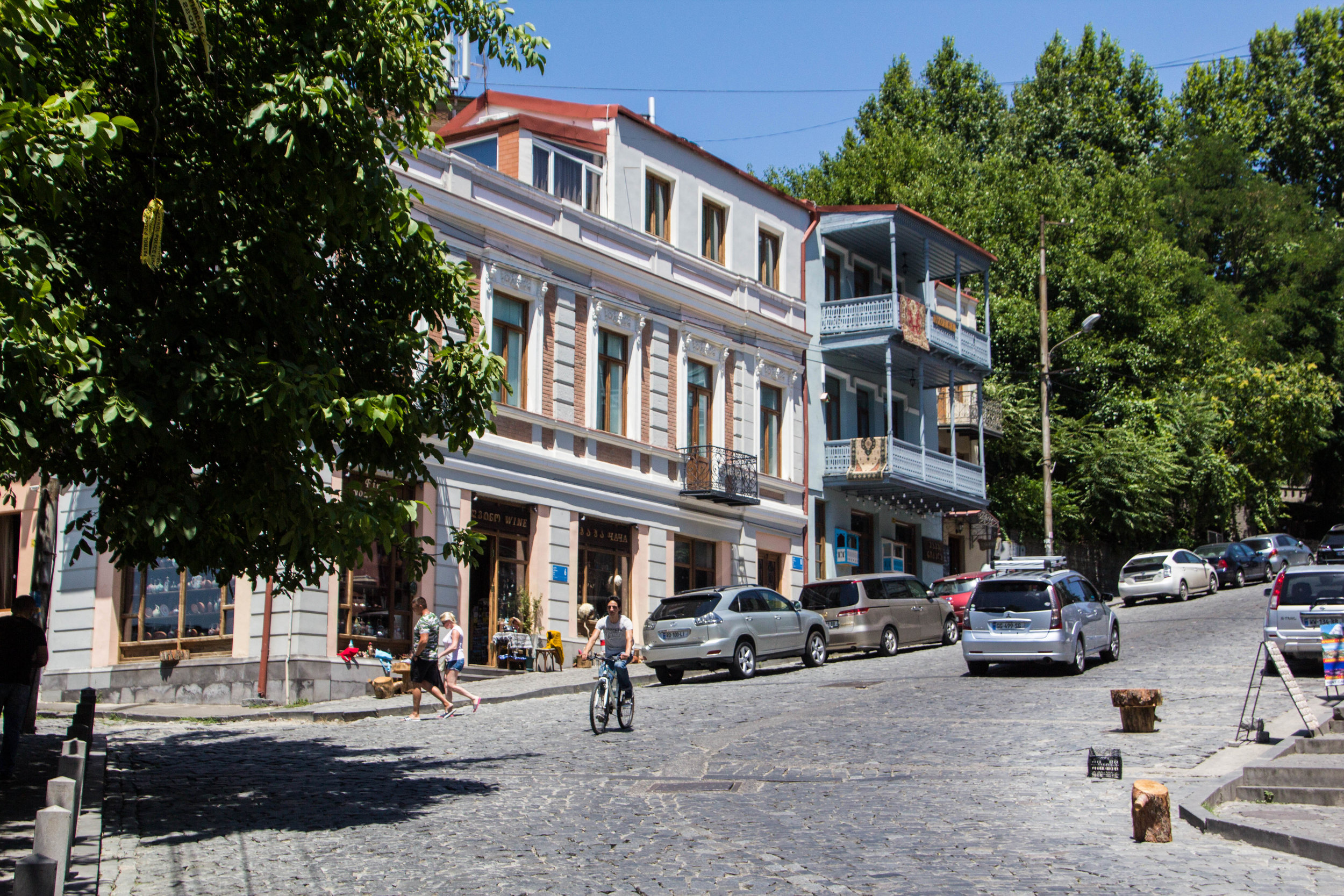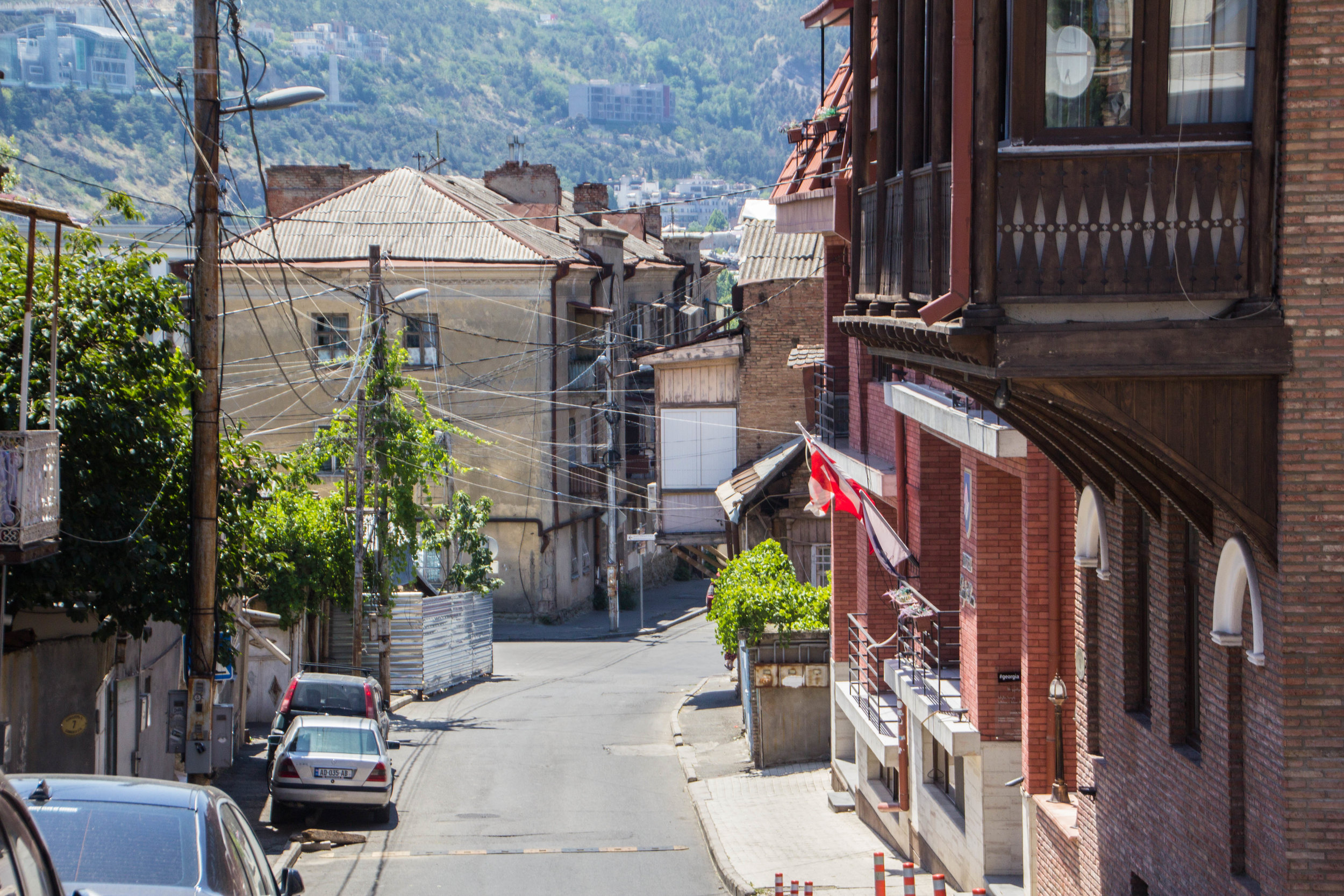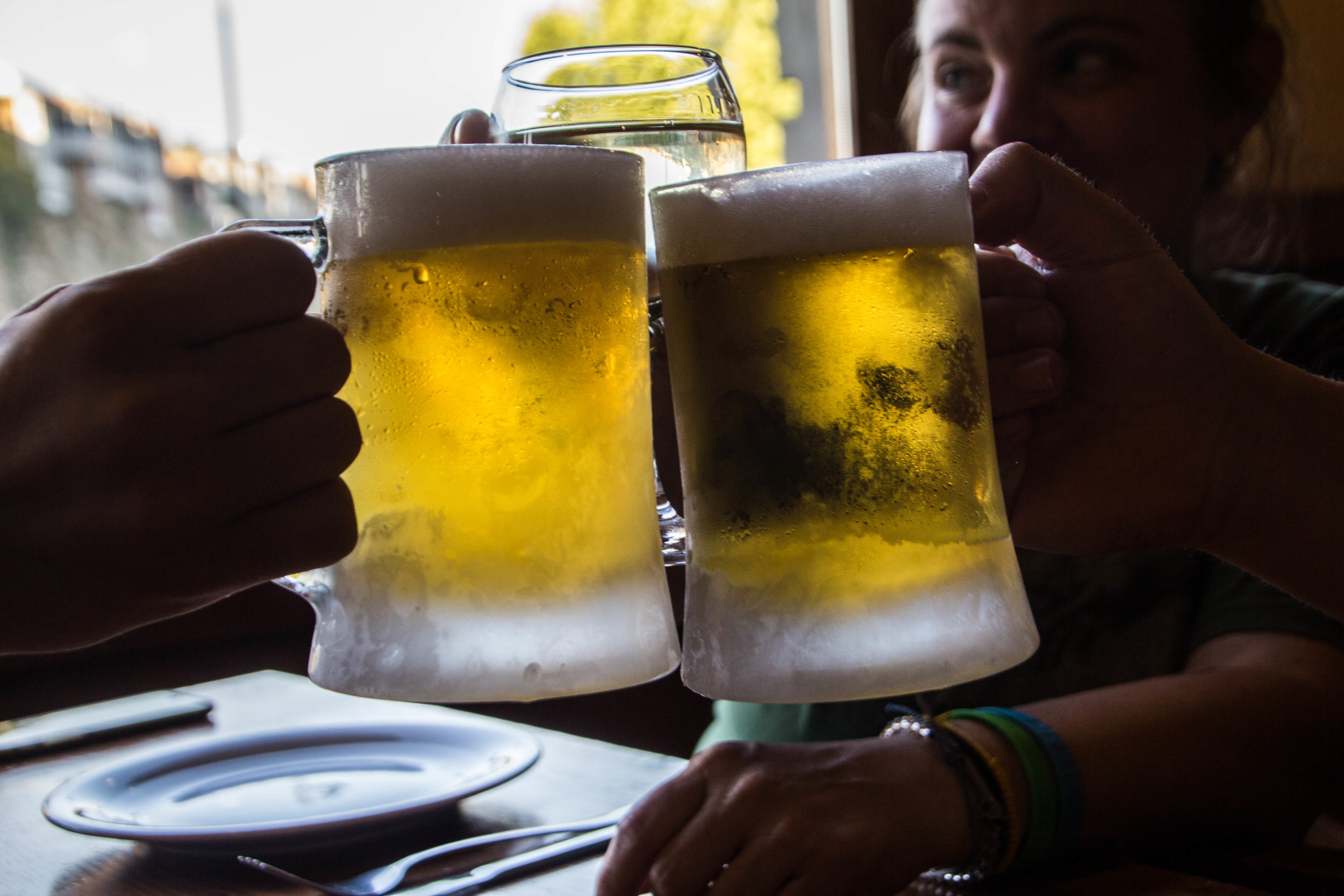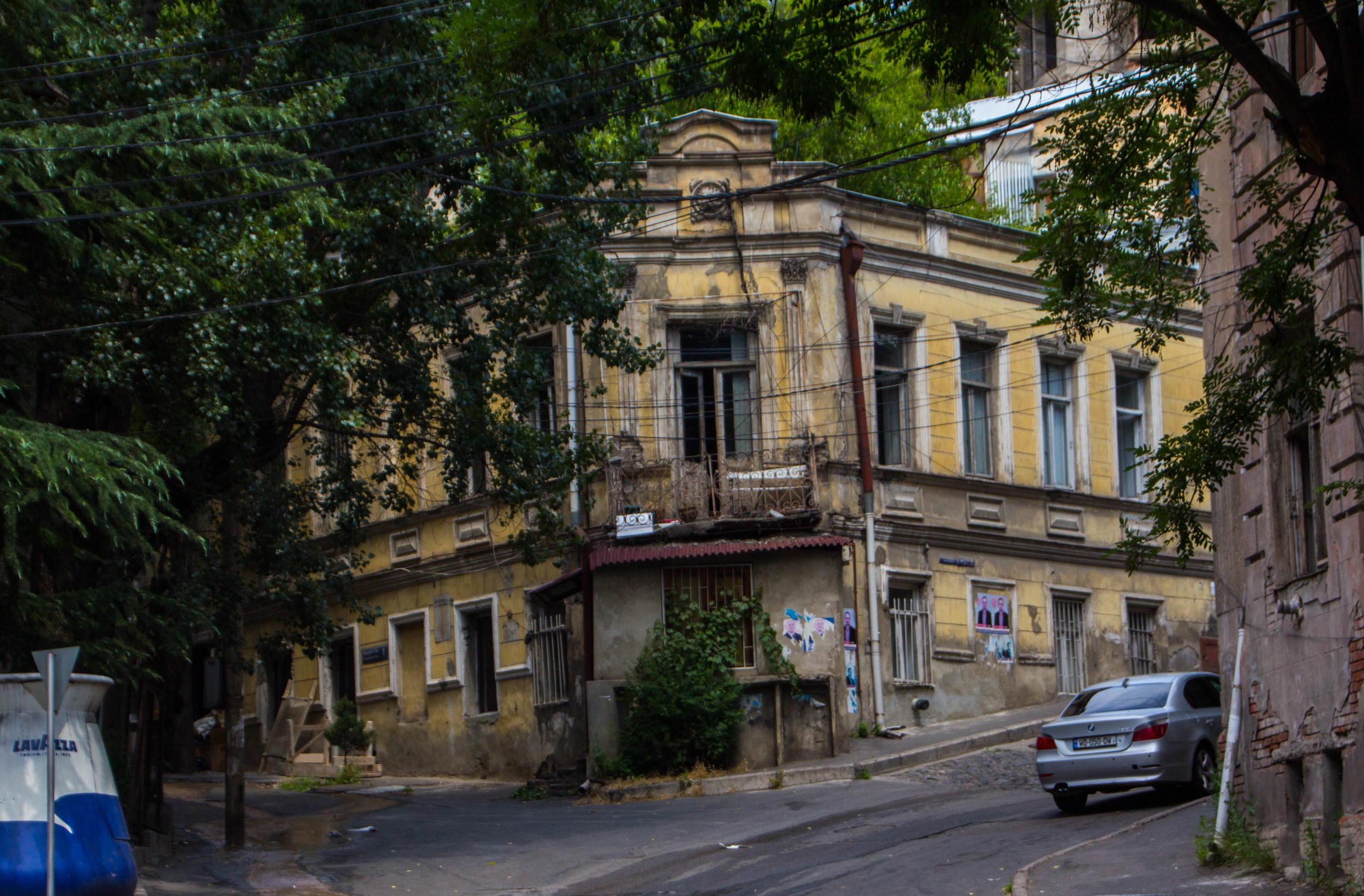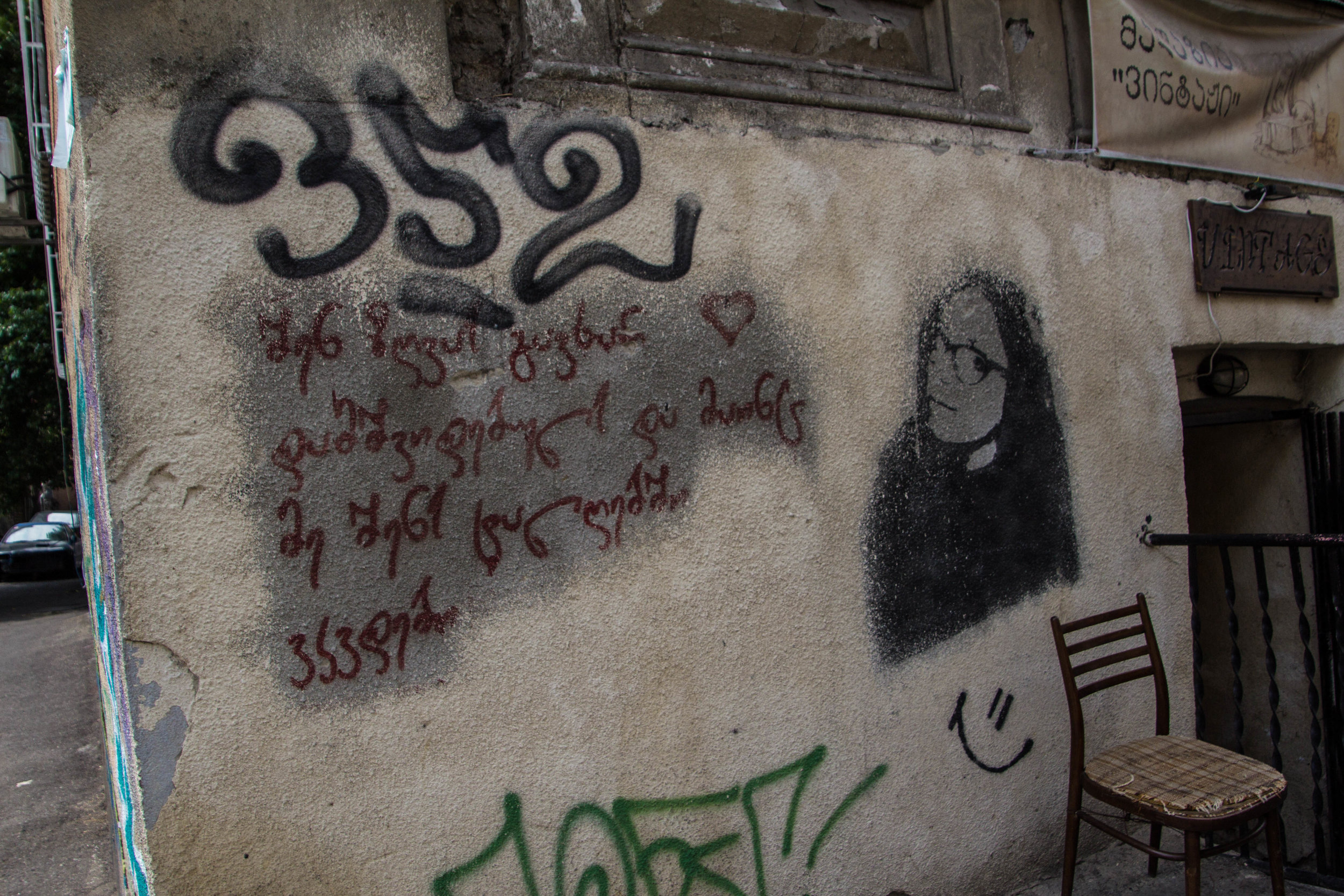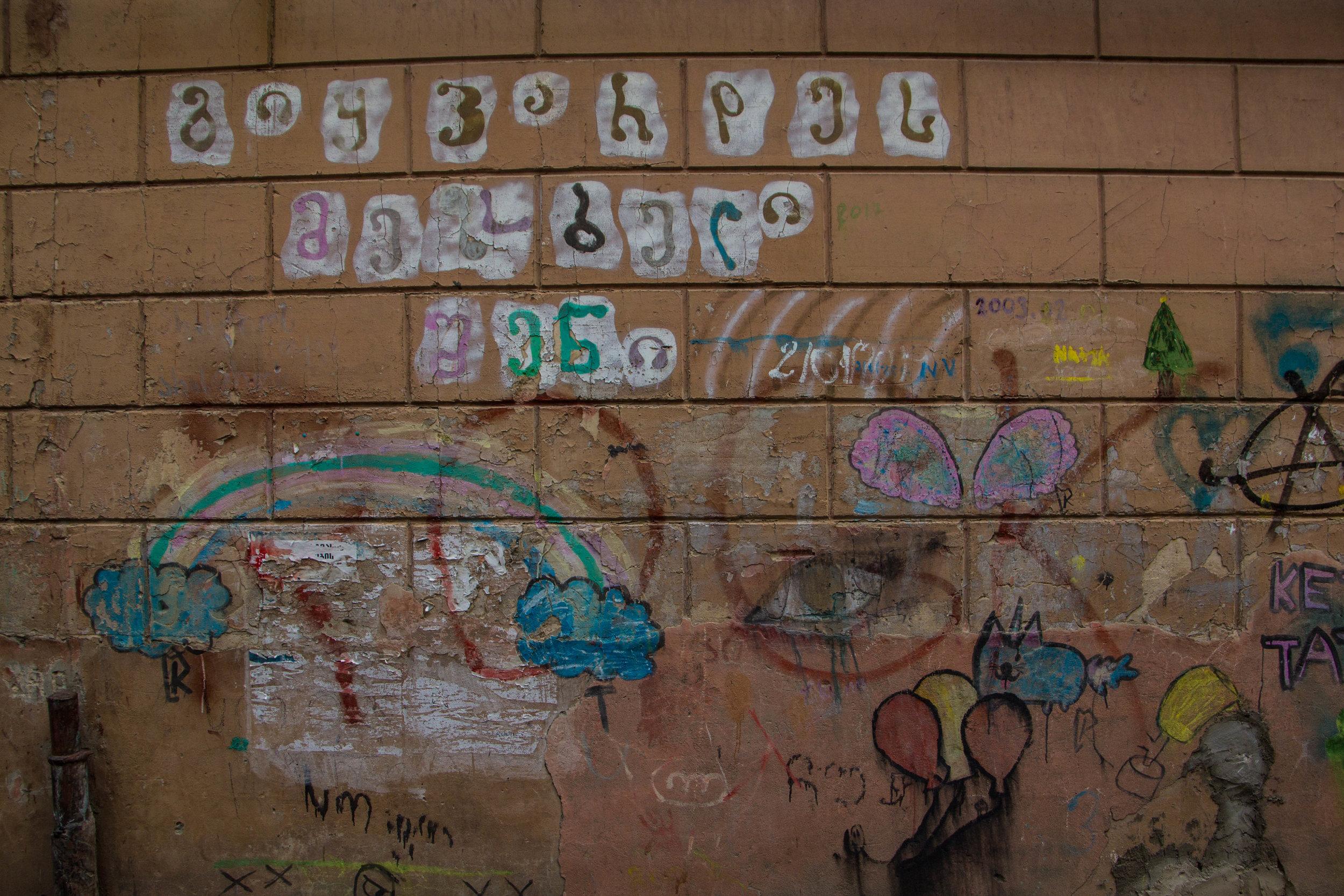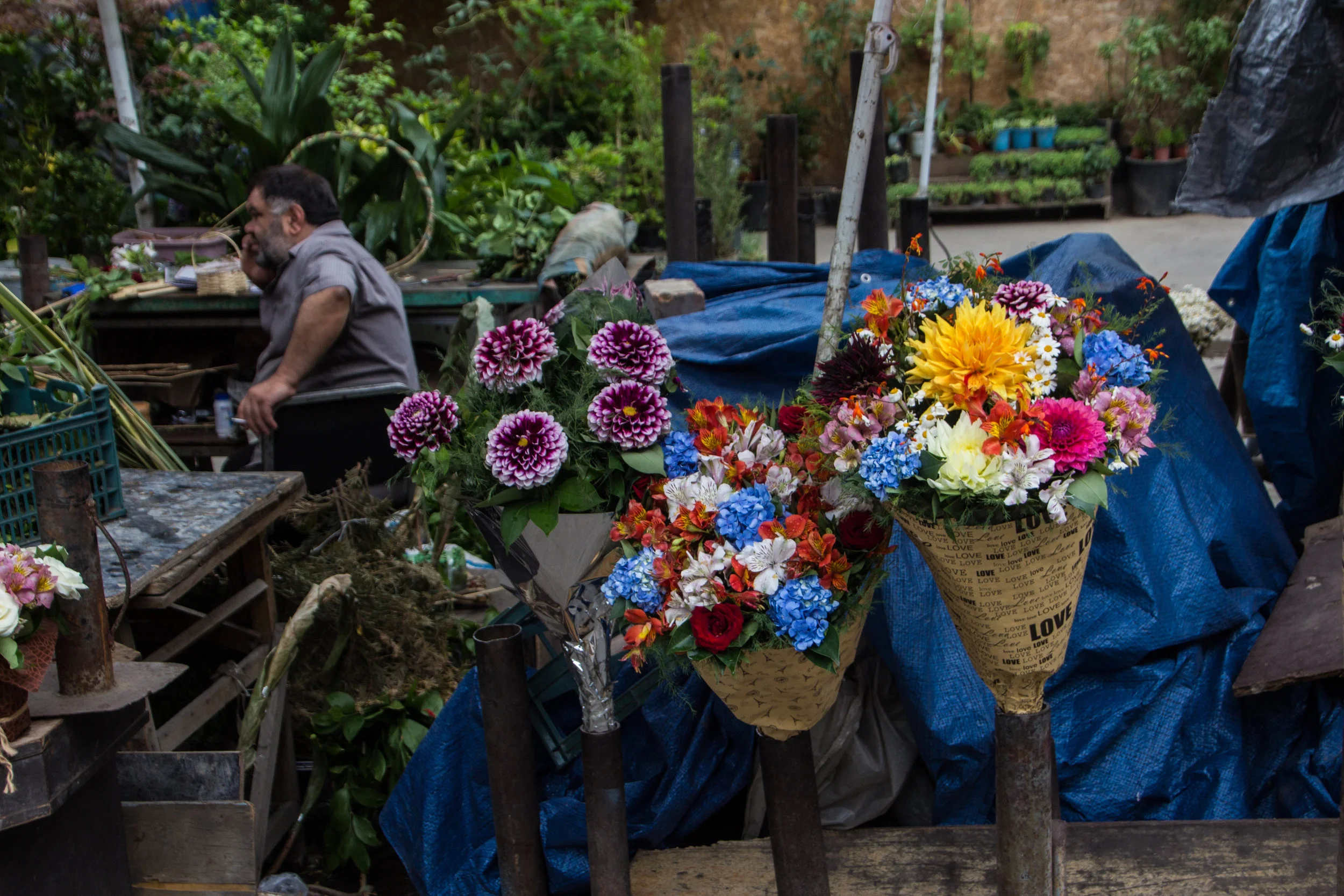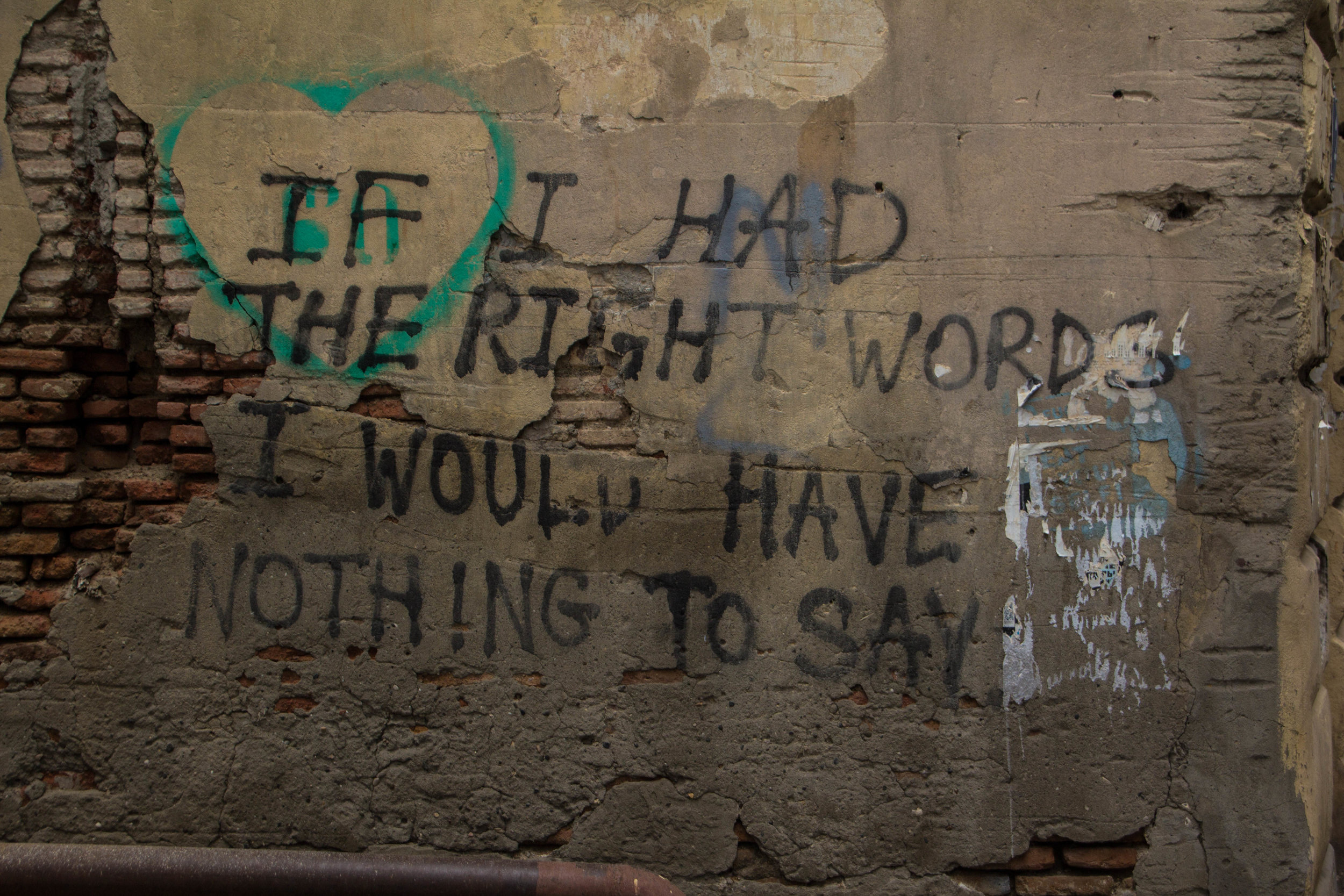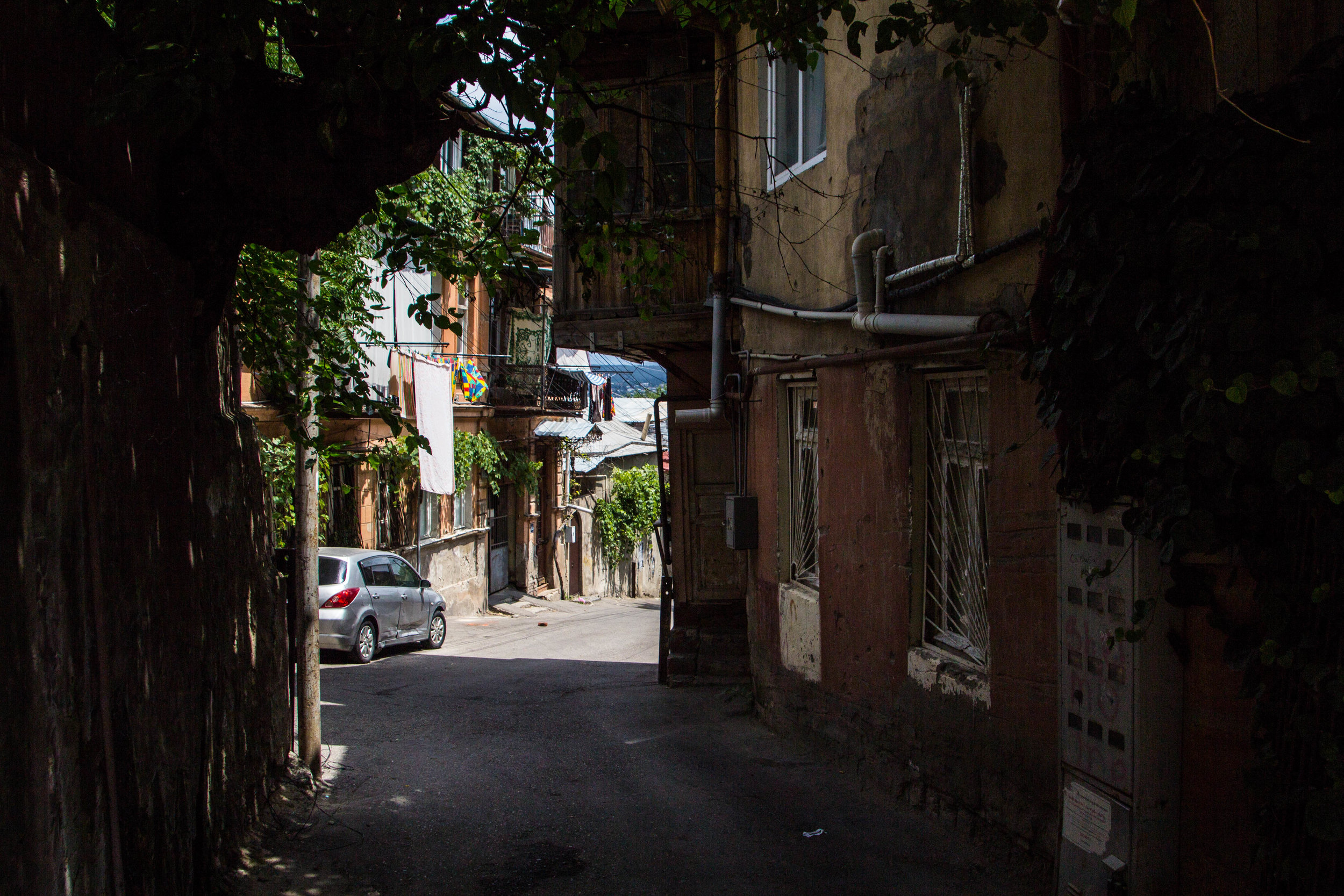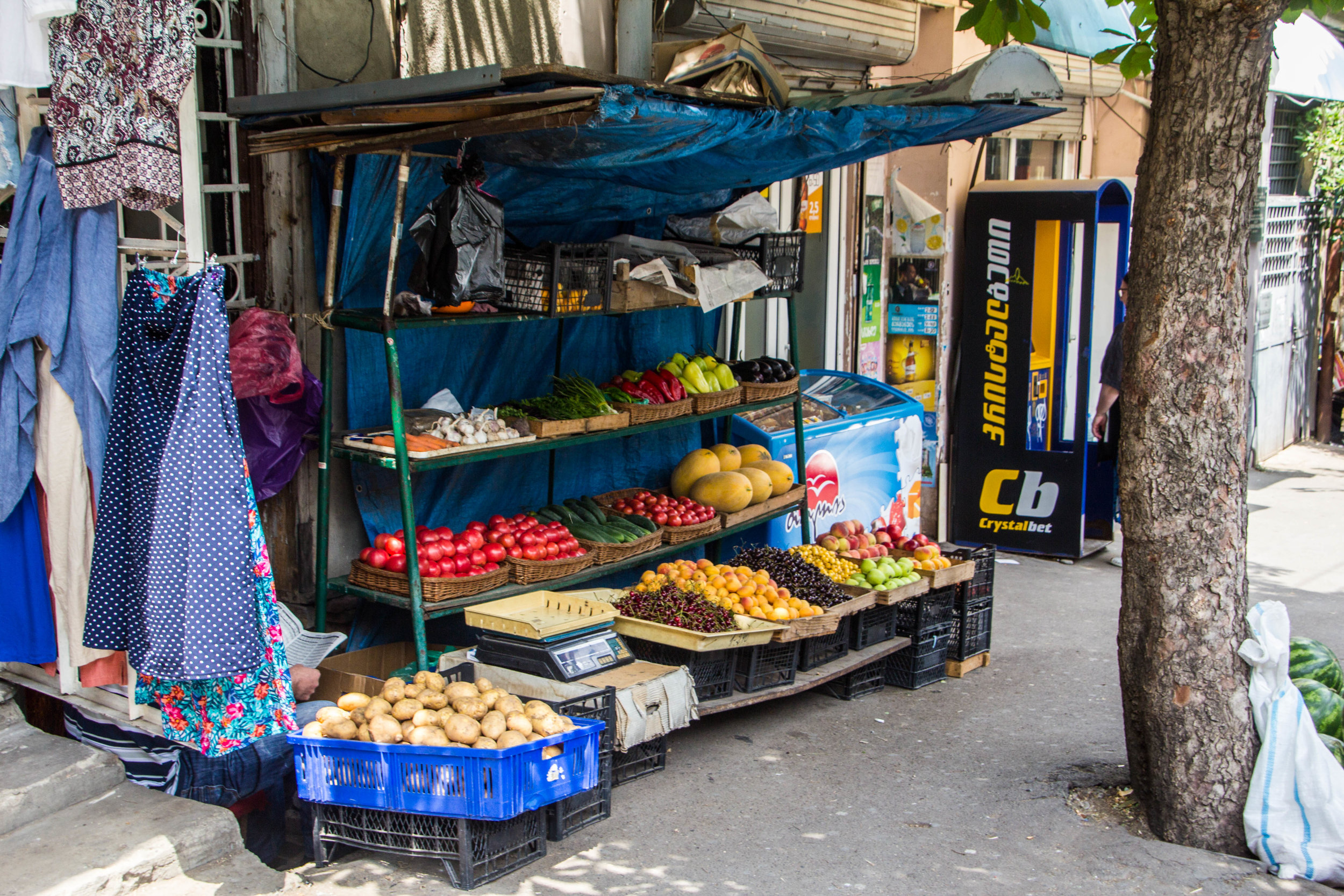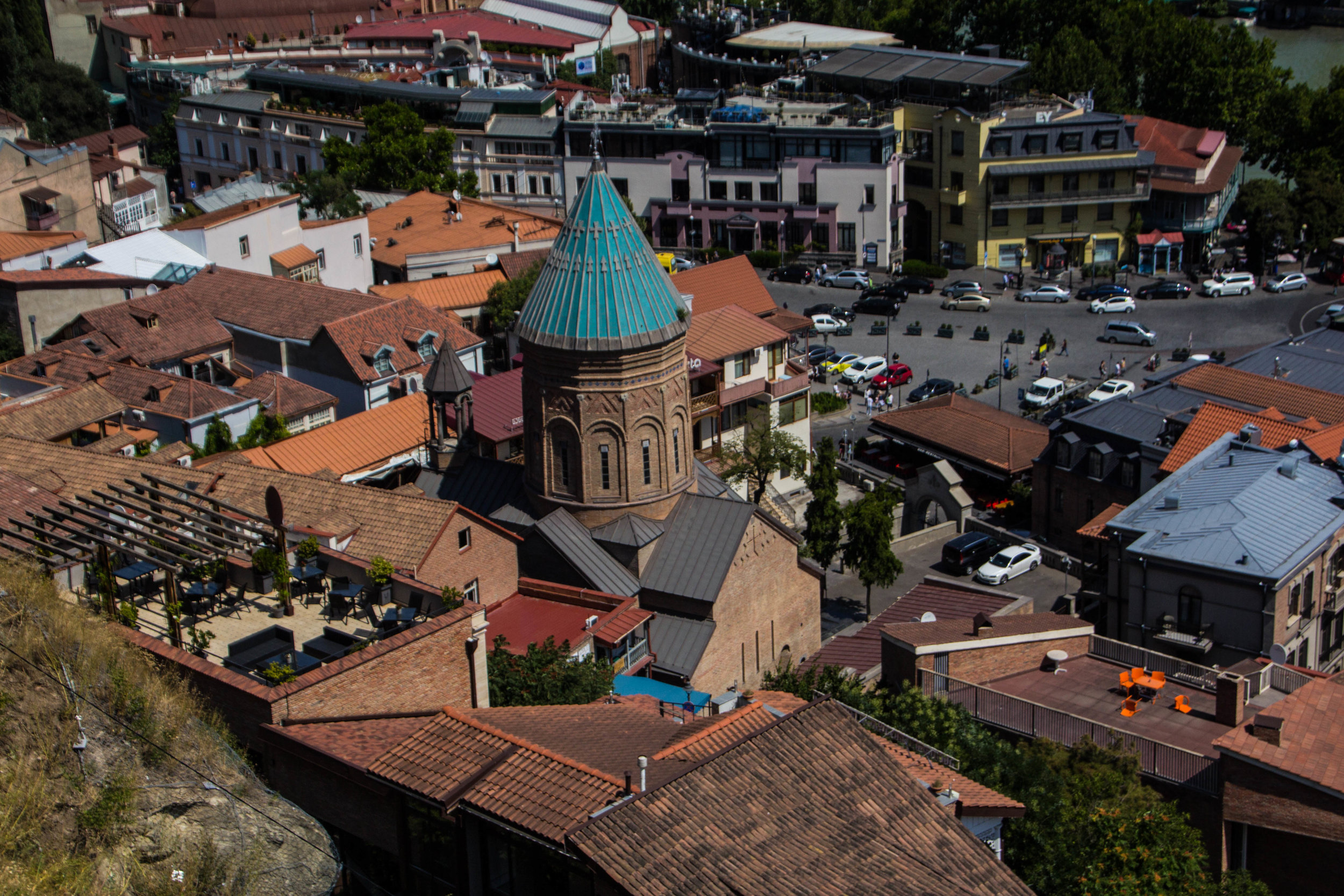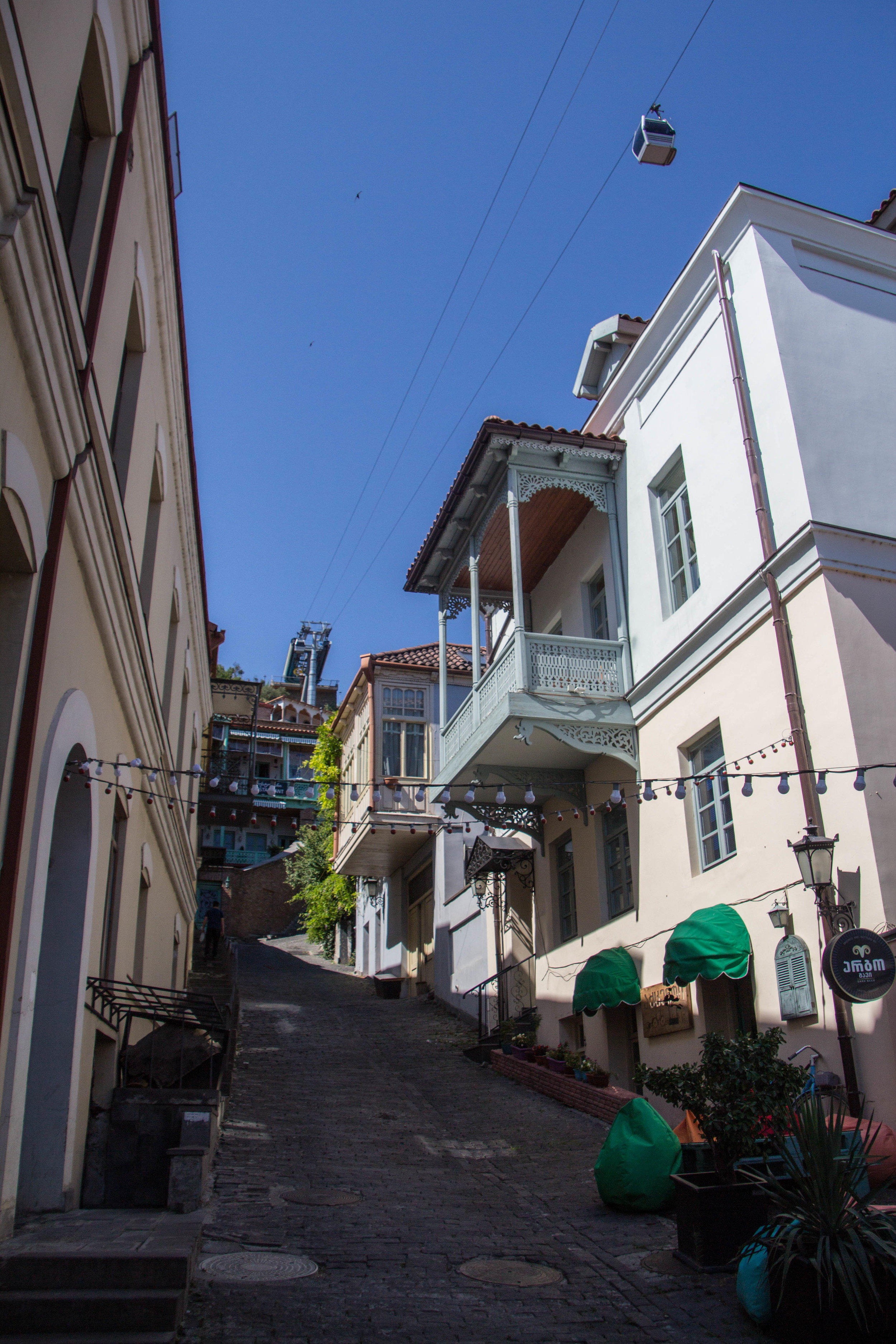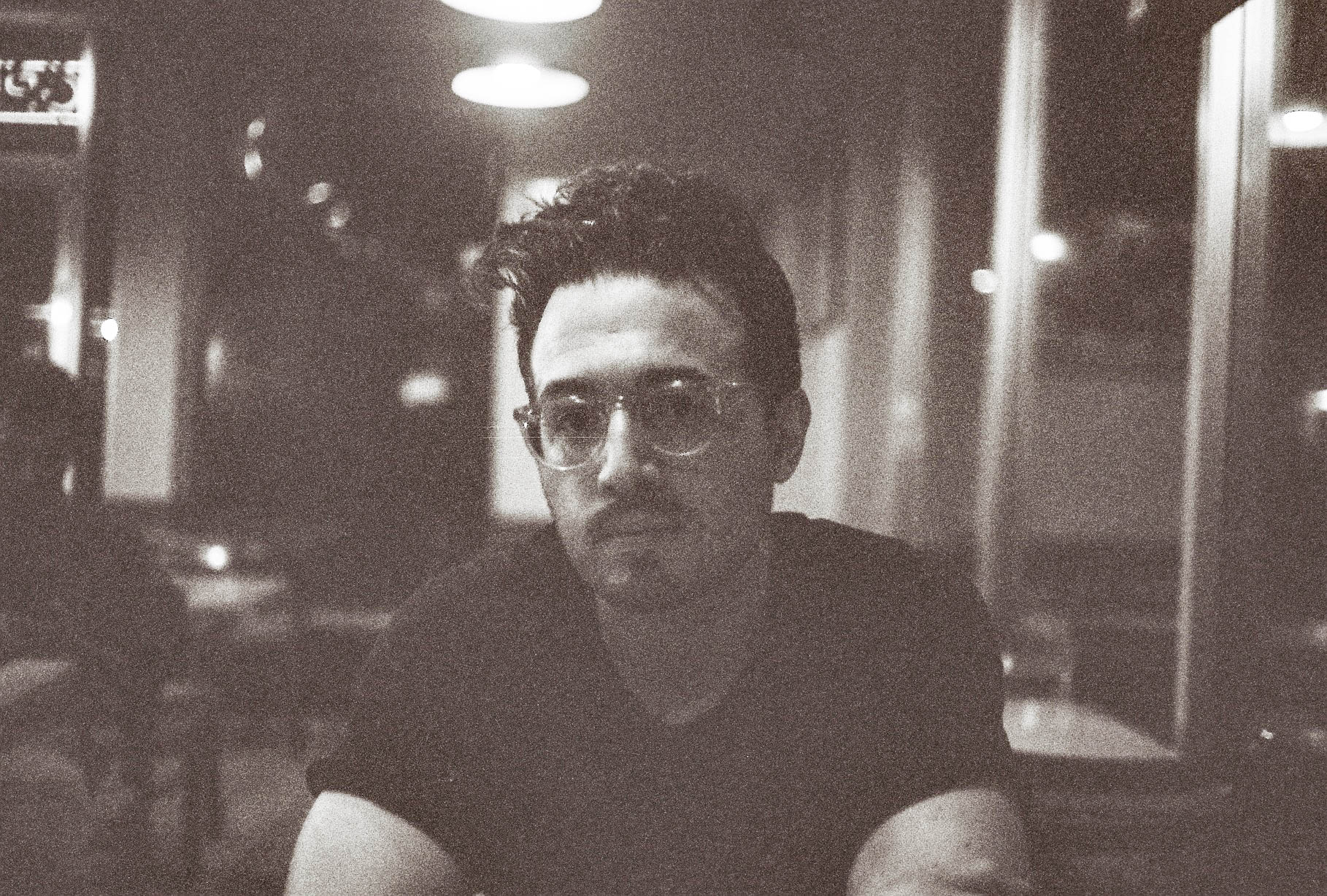On this site, I talk a lot about my belief that cities are living, breathing organisms with character traits that transcend the people who happen to be living in them at any given time. So a big part of my time in any city is spent trying to hone in on that energy and understand, not “what,” but WHO a city is.
Some cities hit you with strong vibes the minute you step out of the airport, and those vibes set the tone of your entire stay. But Tbilisi was an interesting one, because I really didn’t feel anything when I arrived here. Or ever, in the 7 nights I spent in this city. I was expecting some sort of strong, emotive, post-Soviet energy of a fledgling nation determined to get on its feet regardless of Russia’s endless attempts to undermine its sovereignty (or, you know, something like that) … but I felt nothing. Because, as it turns out, Tbilisi is a city with absolutely ZERO pretense.
All of the many interactions I had with locals around Tbilisi were defined by the strange sense that there was really nothing standing between us. Usually in foreign countries you are forced to throw yourself up against the cultural and language barriers with every interaction. Of course, both of these factors were definitely in play in Tbilisi… but it really didn’t feel like it for some reason.
I was reflecting on this as I went through security for my 3:10am flight out of the country 🙄 and that’s when I saw a sign with Tbilisi’s city slogan on it.
Tbilisi: The city that loves you
Yeah. I like that. I can’t promise how you’ll feel about Tbilisi, but I know that you’ll be welcome here. So let’s dive in!
Index:
(click one to zoom down)
1. Historical / Cultural Context for Georgia
2. Setting the Scene for Tbilisi
3. First Impressions & Photos From Tbilisi’s Streets
An Introduction To Georgia
Have you ever heard of Georgia? The COUNTRY of Georgia?
I’m finding that most people haven’t. It hasn’t been a country for all that long. While it is a cultural boundary that has existed for thousands of years, it only became a modern-day country when the Soviet Union (USSR) collapsed in 1991.
Oh, and before I get too deep into this, here’s a fun fact for you: Joseph Stalin was Georgian.
In antiquity this area and culture was known by the names Iberia and Colchis, and was always a significant player in the Caucasus region, either as an independent state, or as a part of some greater Empire. To name a few of the old world Empires that, in the past, have laid claim to this area, Georgia was once part of or conquered by the Greek, Roman, Mongol, Byzantine, Persian, Ottoman, and Russian Empires. And then the Russian Empire reincarnate: the Soviet Union.
Honestly though, it’s difficult to talk much about Georgia as a singular entity in any historical context because the region has never really been unified. There have always been competing factions and subgroups in this space, and that’s a theme that continues to this very day! If you look at a map of Georgia today, there are quite a lot of dotted line borders that you’ll see criss-crossing certain regions of the country. These are frozen conflict zones. And what is a frozen conflict zone? It’s defined as follows:
“A situation in which an active armed conflict has been brought to an end, but no peace treaty or other political framework resolves the conflict to the satisfaction of the combatants”
What does that look like in real life? It looks like peace. Or, peace with an asterisk. The minute there are shots fired, frozen conflict zones simply become conflict zones. The Caucasus region has tons of these. We talked a lot about this dynamic during our series on Armenia with the Nagorno-Karabakh War and the Nakhchivan Autonomous Republic. If you missed it, you can back track to read that article here. Anyway, Georgia has a few of its own that I’ve have to touch on.
Georgia’s two frozen conflict zones are called Abkhazia and South Ossetia. Abkhazia is actually pretty peaceful these days! We had attempted to cross the border and spend a few days there… but our visas got denied. More on that in the post script. The latter isn’t always as frozen as its counter part, as the border has been known to move by a couple meters in the middle of the night.
And who is moving that border in the middle of the night?
It’s those darn Russians!
It’s not easy to be a small country sharing a border with Russia. Since the fall and Balkanization of the Soviet Union, Russia has done its best to prevent any of its former territories from gaining too much power. The most recent notable instance of this dynamic at play was the Russian invasion of the Ukrainian-owned Crimean peninsula. But compared to Georgia, Ukraine has had it easy when it comes to Russian relations.
I’ll give you a very fast summary of Georgia’s civil wars. When the Soviet Union collapsed, the regions of Abkhazia and South Ossetia quickly descended into ethnically motivated violence between the Abkhaz / Ossetian minorities and Georgian majorities. In a normal world, the new Georgian state would have been able to quell these conflicts fairly easily, but this was not a normal world. Russia quickly sent in just enough troops and supplies to make sure that Georgia would not be able to win… and that’s basically where the story ended. These dotted-line borders are maintained by Russian troops to this very day!
Cue the Russo–Georgian War in 2006.
Basically, it started with supposed violence along the South Ossetian border. Georgian troops moved in and took the South Ossetian capital, but the Russian army came in force to push them back, even taking large swaths of Georgian territory along the Abkhazian border as well. Meanwhile, South Ossetians began a large scale ethnic cleansing (by way of forced deportation) of Georgians from their region. Georgia actually did manage to score some solid blows against Russia (which were the cause of some embarrassment for Putin, a fact which Georgians like to embellish when recounting the story of this conflict) but it was clear that Georgia was not in at all in a position of strength. Thankfully, in 2008, there was a ceasefire and Russia’s troops were withdrawn.
This conflict served to underscore the de facto autonomous status of South Ossetia and Abkhazia. 99% of the rest of the world still recognizes these regions as being part of Georgia, but Russia recognizes them both as full-fledged countries because it undermines Georgian sovereignty. And—back to the sneaky encroachment into Georgian territory—sometimes these “sovereign” countries get just a few meters bigger in the middle of the night when Russian forces move the fences and fortifications forward under cover of darkness. Sometimes that means people who live along these borders literally fall asleep in Georgia, and wake up in Russia. Strange to think about, but it has happened.
So that’s what keeps Georgia’s diplomats up at night.
But even when you put aside the destabilizing ethnic tensions and ever-present threat of conflict with Russia, Georgia has STILL had a pretty rough go of things since the collapse of the Soviet Union. For most of the front half of the 30-odd years Georgia has been a country, its economy has been in a severe state of depression. Additionally, Georgia (like Russia) has mostly been controlled by a small set of Oligarchs, and this has wrought a corresponding set of issues related to corruption and inequality. All of this painted a pretty bleak picture for a while, but things have been changing quickly. Georgia is a success story in the making!
In 1996, the first of a series of generous aid packages arrived in Georgia courtesy of the World Bank, the IMF, and some of Georgia’s European neighbors. While Russia has consistently done it’s best to stifle economic growth in Georgia with small-scale embargoes and general price-gouging on things like fuel, Georgia’s economy has been on a meteoric rise. In 2007, their annual GDP growth reached 12%, which was one of the highest growth rates in the region, and in that same year, they jumped from being ranked 112 to 18 in terms of “ease of doing business,” as ranked by the World Bank. This prompted the World Bank to dub them “the number one economic reformer in the world" that year. Fast forward to today, and Georgia is now ranked 6th in the world here, surpassing even the U.S.! And here’s another cool economic fact about Georgia: in 2001 ~54% of the population lived below the poverty line, but today that number is less than 10%.
And of course, I’d be remiss if I failed to mention the role that tourism has played in Georgia’s economic resurgence. This might be the first time you’re hearing about Georgia, but I very much doubt it will be the last. This place is on the upswing! And I’m 0% surprised by that. It’s beautiful, it’s cheap, and it feels like Europe even though it’s not, which makes it feel simultaneously safe but adventurous to Westerners. It was an American girl I met in a hostel in Cuba in 2017 that first put Georgia on the map for me. I was totally sold after she told me about her trip here! And then of course Bourdain’s episode of Parts Unknown about Georgia was absolutely intoxicating as well. It didn’t take me long to definitively decide that I’d come here one day, and that day came a lot sooner than I anticipated!
Tbilisi In 60 Seconds
Tbilisi is the capital city of Georgia. Founded in the 5th century AD, it straddles the banks of the mighty Kura river. Historically it has arguably been the most significant city in the Caucasus region, and thus has remained prominent stopover point for trade from the days of the silk road to modern energy and trade projects. It’s the largest city in Georgia but there are only about 1.5 million residents and ~4 million people living in its metro area as of 2019, which means it’s a relatively small place. And although most maps will show the Tbilisi metro area as being circular in shape (which is pretty standard), the truth is that the main corridor of city life is quite elongated in shape, as it basically just hugs the banks of the Kura River. The city developed in this way because the Trialeti Mountain Range (part of the Lower Caucasus Range) picks up just a few city blocks from the western bank of the river. The topography is less intense on the western side of the river, but it’s still an upward climb. So if you’re planning on seeing Tbilisi by foot, be forewarned that there will be some STEEP hills!
Visually, Tbilisi looks like some sort of architectural antique store. It’s been sitting at a crossroads between Eastern Europe, Central Asia, and the Middle East for long enough that Empires from all of these regions have, at various points, laid claim to this city. As a result, the architecture is extremely varied, with prominent themes including modern, Stalinist, Nouveau, Beaux Arts, neoclassical, AND medieval, all of which can be seen side-by-side on nearly every city block. The one commonality across nearly all of it (except perhaps the modern structures) is a tasteful level of urban decay somewhere between the weathered streets of Palermo and the vibrant maze of wreckage that is Havana. All things considered, it is a truly unique place.
When I first looked at map of Tbilisi, I was a little disoriented by its odd shape, so I’ve done my best to give you something a bit more visually helpful below. Here’s a quick ledger for what the color code below is intended to represent.
Blue 💙= Tbilisi Cityscape (a general representation of what would be considered urban or suburban)
Red ❤️= Kura River (this river is the centrifuge of life and city planning in Tbilisi)
Yellow 💛= Tbilisi City Center (if you need to book accommodations, try to do it here!)
ARRIVING IN Tbilisi
+ First Impressions
It was fucking HOT.
Everything I had seen of Georgia up to this point was of snow-covered mountains, gray skies, and people wearing cozy sweaters… so even in the dog days of summer, I assumed that Georgia was going to be quite temperate. This was not the case. I arrived in Tbilisi at like 5am and it was already upwards of 90° F. 😩
To get from the airport into town, I split a Yandex with an American that I had befriended in line. If you don’t know, Yandex (or, I believe the full name is “Yandex.Taxi”) is basically Russian Uber. I HIGHLY recommend that you download the app if you come to Georgia. You can do so HERE. It’s super cheap to use and will save you tons of time and energy not having to fight with taxi drivers about prices.
Funny story: about a week after my arrival in Georgia, it was late at night and I was waiting for my Yandex to arrive outside a club called Fabrika when a taxi driver approached me asking if I needed a ride. Tiredly, I just turned him my phone screen towards him and showed him my Yandex app with my driver en route. All hope of closing the deal gone, he shook his head and laughed to himself. Then he asked how much I was paying through Yandex. I told him it was about 4 GEL (~1.35 USD). Dejected, he threw up his hands and laughed again. “With normal Taxi driver, it would be 10!” he said, clearly upset, but not at me. I got the sense that Yandex had only recently began competing for business from guys like this. He asked me where I from and I told him the U.S. His lips curled down in a theatrical frown, he shrugged and then gave a thumbs up like it was a concession. “America good” he said flatly, and then he walked away. It was funny.
Anyway, booking accommodations is always a bit of a crap shoot. Tools like Airbnb and Hostelworld make this a lot easier, but in the end you have to take a leap of faith. I took that leap of faith with the Opera Hostel, but when I arrived at 6am I realized that this particular hostel HAD NO AIR-CONDITIONING. It seems like such a basic thing that I forget to check sometimes. Their only staff member was asleep on the couch next to the front desk when I showed up and check-in wasn’t until that afternoon so I dug my laptop out of my pack, cancelled my booking, and made a new one at the air-conditioned Envoy Hostel where my American Yandex partner had just been dropped off. I also stayed at the Envoy in Yerevan (it’s a small regional chain), so I think it’s about time I give them the coveted Peter’s Preference 🏅Award. (I just made that up.) With that, I packed my bag back up and slipped back out the door to meet my next Yandex driver. I always feel a strange sense of accomplishment when I make game-time decisions like this. This kind of switch would have felt like a big ordeal for me 5 years ago, but now I can just roll with the punches. 💪
This is the point in my trip where I was planning my rendezvous with my little brother Joe, who was fresh off the train from Azerbaijan. Over the past year, that dude had been living in Nepal and more recently traveling from Beijing to Europe WITHOUT TAKING A PLANE. He really did it too! You can check out his blog here. Anyway, I finally met up with him after his year of globe-trotting once he arrived at Opera, saw my text message, and then walked halfway across Tbilisi to the Envoy. Meanwhile, I was already sitting at small open-air cafe sipping a cappuccino on the cobblestone. 💅
I’ve already thrown a ton of information at you, so I’ll get straight to the good stuff now. From here, all that’s left to is to grab the trusty ol’ camera and get out onto the streets! Check this place out…
Tbilisi is a truly beautiful city. But it had some rough edges just like anywhere else. On the long stretches of road between points of interest, often we would find ourselves walking through hot crowded bus stations, shabby chain stores selling electronics or clothes, and loud people soliciting tours or taxis. In the sweltering heat, sometimes it put me in bad spirits. I think the older and busier I get in this life, the more difficult it becomes to create the space in my mind necessary to take these new places in. Mindfulness does not happen by accident, and I am realizing that this is something I need to put more effort into.
However, in spite of the distractions and racing thoughts that cloud my memories of Tbilisi, I also have an oddly serene collection of vignettes in my mind that powerfully and silently remind me of the peace and beauty that peaks through the seams of this sometimes-volatile country. A weathered urban corridor winding uphill and out of sight, with the wind rustling the leaves. A passing glance caught through a window of a shop keeper presiding over their domain, with the ambient noise of traffic in the background. A couple walking along the Kura river at night, silhouetted against the city life, with honks of rush hour traffic behind them. I don’t know why, but it plays in my head as a montage with no music. No pretense.
…
(intentional paragraph gap to encourage the reader to join in this moment of reflection)
…
So that should have gotten your feet sufficiently wet in the pond that is Tbilisi. Up next we’re going dive all the way in and start working our way through some of my favorite sites and attractions this city has to offer. Spoiler alert, we’re going to buy somebody’s old Soviet Passport at a flea market and visit a church that gives the freaking Vatican a run for its money. Stay tuned!
P.S. Whatever Happened With Us Going to Abkhazia?
In my travel plans post for this trip, I did a whole section on how we were going to venture into a frozen conflict zone called Abkhazia. We didn’t end up getting to follow through on this because my visa application was denied. I’ve never had an application get denied before! But Abkhazia put a black spot on my record.
Unfortunately, I didn’t find this out until half was through my time in Georgia (I had been trying to time this visa to go live right around the time that we would be arriving at the border), so we ended up with more time in Georgia than anticipated, all of which we just spent in Tbilisi. I had spent the first half of my trip refreshing my email to see if our applications had been accepted, but eventually I found this in my spam folder:
Isn’t that email weirdly up-beat for a rejection? Upbeat and to-the-point, but also painfully vague. I chuckled when I read it.
I have a hunch why I got rejected. Politically, Georgia was pretty tense during my trip here. And in the Caucasus region, when it comes to political tension at least, a rising tide raises all boats. There were apparently big protests happening around the country at this time, and although I’m not sure how exactly Abkhazia was connected to all of this… I don’t think it was a coincidence that they boned us. In this region, everything is connected. Oh well 🤷🏻♀️






